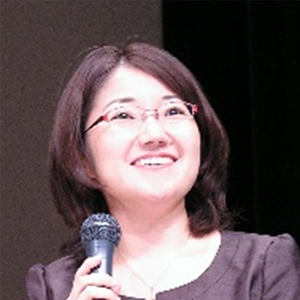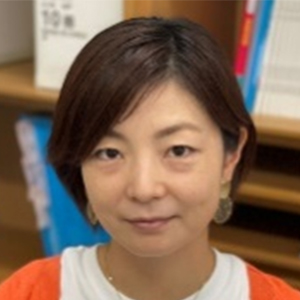Research Group
X00 : Supervising Group
Child poverty research as an Interdisciplinary Field
(1) Project Management of the Overall project (overall planning, organization of research groups, budget management, reports, liaison, etc.)
(2) Consultation with local governments (first contact with local governments, negotiation and conclusion of agreements, receipt of data, reporting, compilation of policy recommendations)
(3) Formulation of the policies for the database (consultation and formulation of data management policies with the database construction group)
(4) Management of public solicitation research (public solicitation, preliminary screening, holding of selection committee meetings, notifications of decision, etc.)
(5) Design of “the Tokyo Survey on Living Standard of Children” (the database construction group is in charge of conducting the actual survey)
(6) Cooperation and coordination with overseas collaborative teams
(7) Implementation of symposiums, training, and public relations activities
The members of Supervising Group
◎:Principal Investigator / Other:Co-investigators
| ◎Aya K. Abe | Tokyo Metropolitan University |
| Ichiro Matsumoto | Hokkaido University |
| Akiko S. Oishi | Chiba University |
| Yuko Kachi | Kitasato University |
| Naoko Yamamoto | Toyo Eiwa University |
| Kaori Suetomi | Nihon University |
A01 Group:Database Construction Group
Research of the construction of child Poverty Survey Database
The role of this group is to construct the database for the use of other groups and its own analysis. Specifically, it is to harmonize, integrate, and prepare manuals for the survey data provided by various prefectural and municipal governments. In addition, in order to complement the government data, the group will conduct a large-scale quantitative survey in the first year, along with a qualitative panel survey to follow-up. A qualitative panel survey consists of repeated interview surveys of the same subjects, and by continuing this survey during the period of this PJ, it is possible to prove the causal relationship between the external factors and the outputs. Since there is a huge amount of work to deal with in this group, we employ 1 postdoctoral researcher and 3-6 graduate students (temporary employment). This group will hold regular consultation with the integration group about the details of data cleaning, policies of data integration and the schedules. .
The members of Group A01
〇:Principal investigator / ☆:Advisor
 |
Group A01: Database Construction Group Principal investigator Coordination, database construction, impact analysis of social policies |
|
Group A01: Database Construction Group Co-investigators Database construction |
|
|
Group A01: Database Construction Group Co-investigators Database construction |
|
|
Group A01: Database Construction Group Co-investigators Advice on database integration |
B01 Group : Regional Analysis Group
Research of the relationship between child poverty and region
The Regional analysis group will provide additional information (number of child-related facilities, number of convenience stores and grocery stores, gap indicators within regions, etc.) to the database for each region (preferably elementary school regions, but also middle school districts and administrative districts, as the details of different residential location information varies by municipality) and analyze whether these municipality characteristics are related to the impact that poverty brings to children. Each members of the Regional Analysis Group is involved in the surveys of local governments in their respective university locations (Hokkaido, Sapporo City, Osaka Prefecture, Osaka City, Okinawa Prefecture, and Aichi Prefecture), and thus will create a tailor-made policy recommendations for these municipalities.
The members of Group A01
〇:Principal investigator
 |
Group B01: Regional Analysis Group Principal investigator Integration, Analysis of the Hokkaido Survey |
|
Group B01: Regional Analysis Group Analysis of the Osaka Survey |
|
|
Group B01: Regional Analysis Group Analysis of the Okinawa Survey |
|
|
Group B01: Regional Analysis Group Analysis of the Okinawa Survey |
|
|
Group B01: Regional Analysis Group Analysis of the Aichi Survey |
|
|
Group B01: Regional Analysis Group Analysis of the Aichi Survey |
B02 Group : Gender Group
Child Poverty Research Incorporating a Gender Perspective
The Gender Group will address issues related to poverty and gender. The first perspective is to examine gender gaps in the impact of poverty children. Previous analyses of high school students by Research Center for Child and Adolescent Poverty have shown that girls have lower expectation on education achievement than boys and are expected by their parents to take on the role of supporting family budget (Kawaguchi, 2020). Also, girls are more likely to do part-time jobs than boys, and this situation is known to be verified only in poor households. Children poverty analyses have revealed a relationship between various outputs (academic achievement, physical strength, self-esteem, nutrition, health condition, mental condition, etc.) and poverty, but this relationship varies by gender. So, this group will clarify the mechanism of this relationship. In addition, we will analyze single father households, for which there is little accumulation of research, and gender minorities, as well as conduct textual analysis of the anxieties of households raising children from the free text sections of the survey forms. The Group will be headed by Akiko Oishi (Chiba University), who has deep insight into the part-time employment of high school boys and girls from the perspective of labor economics, and will include Yoshiko Saga (Osaka Prefecture University), who analyzed single-parent households in the Osaka survey, Kei Suemori (Nihon Fukushi University), who analyzed surveys in Aichi Prefecture, Ai Ando (Chiba University), a specialist in family sociology, Ryo Kawaguchi (Tokyo Metropolitan University), who specializes in gender studies, and Saori Kamano (National Institute of Population and Social Security Research), a leading researcher on gender minorities in Japan. The group is also planning an international symposium in its fourth year.
The members of Group B02
〇:Principal investigator / ※:Co-investigators
 |
Group B02: Gender Group Principal investigator Gender gaps in the impact of poverty children |
|
Group B02: Gender Group Analysis of single-parent households |
|
|
Group B02: Gender Group Analysis of single-parent households |
|
|
Group B02: Gender Group Analysis of Anxiety in Child-rearing Households |
|
|
Group B02: Gender Group Analysis of the surveys in Aichi |
|
|
Group B02: Gender Group Analysis of gender minorities |
B03 Group : Implementation Feasibility Study Group
Theoretical and empirical study of implementation feasibility of poverty research
The Implementation Feasibility Study Group will examine each element of Evidence Based Policy Making (EBPM), such as political process, public opinion formation, procurement of financial resource, mobilization of actors such as government and NPOs, and their coordination, which is necessary to reflect the findings from each research planning group in policies as evidence, with the aim of making concrete policy recommendations and their implementation. The group will be headed by Kaori Suetomi (Nihon University) and Noriko Yamano (Osaka Prefecture University), who are also the members of the Cabinet Office’s “Research and Study for Establishment of Education and Welfare Database to Support Children in Poverty”. It also includes Taro Miyamoto (Chuo University), who is familiar with the connection between politics and NPOs and has served as the chairperson of the Ministry of Health, Labor and Welfare’s “Study Group for Discussion on Self-Support for the Needy,” Takashi Horie (Tokyo Metropolitan University), who is familiar with the formation process of public opinion, and Akio Kurokawa (Kanagawa University of Human Services), who was involved in compiling the “Science for Policy” project at JST RISTEX, the model project of this PJ.
The members of Group B03
〇:Principal investigator
 |
Group B03: Implementation Feasibility Study Group Principal investigator Integration, Financing of policies |
|
Group B03: Implementation Feasibility Study Group Policy decision Making Process from Political Theory and NPO Organization Theory |
|
|
Group B03: Implementation Feasibility Study Group Research on the database construction of welfare and education |
|
|
Group B03: Implementation Feasibility Study Group Analysis of Public Opinion and policy decision making process |
|
|
Group B03: Implementation Feasibility Study Group Research of policy formation process and science for policy |
B04 Group : Foreign Roots Group
The analysis of the impact of the interaction between Foreign Roots and Poverty on Children
The Foreign Roots Group will analyze the poverty and living conditions of children with foreign roots (both parents with foreign nationality and one parent with foreign nationality). This group includes Yanfei Zhou (Japan Women’s University) who has been analyzing obesity among children with foreign roots, and Yoshimi Chitose (Department of National Institute of Population and Social Security Research) who conducted the surveys in Shizuoka Prefecture and Iwata City, as the Co-investigators, and will use this PJ database to analyze children with foreign roots in comparison with children in general.
The analysis not only allows comparison of children with Japanese parents and children with foreign roots, but also includes the analysis of children whose one parent is Japanese, whose nationality is Japanese, and who have been raised in Japan since birth.
The members of Group B04
〇:Principal investigator / ※:Co-investigators
 |
B04 Group: Foreign Roots Group Principal investigator Integration, Analysis of the poverty of children with foreign roots |
|
B04 Group: Foreign Roots Group Analysis of the health condition of children with foreign roots |
|
|
B04 Group: Foreign Roots Group Analysis of the living condition of children with foreign roots |
B05 Group: Health Group
The Clarification of Health Gap of children
The health group will analyze the relationship between poverty and children, especially those with health problems and those with parents who have health problems. The main targets are children with obesity, diseases, or with parents who have depression or other poor health conditions. This group includes Takeo Fujiwara, who is internationally acclaimed for his child abuse research in the field of public health (and also a member of the consortium), and Atsushi Sakai, a developmental psychologist (Tokyo Metropolitan University). The analyses will also delve into the issue of poverty in the parents’ generation.
The members of Group B05
〇:Principal investigator
 |
B05 Group: Health Group Principal investigator Analysis of obesity, health condition and well-being of children |
|
B05 Group: Health Group Analysis of obesity, health condition and well-being of children |
|
|
B05 Group: Health Group Analysis of children’s camaraderie and friendship |
|
|
B05 Group: Health Group Analysis of children with depressed parents |
|
|
B05 Group: Health Group Child development and family relationships |
